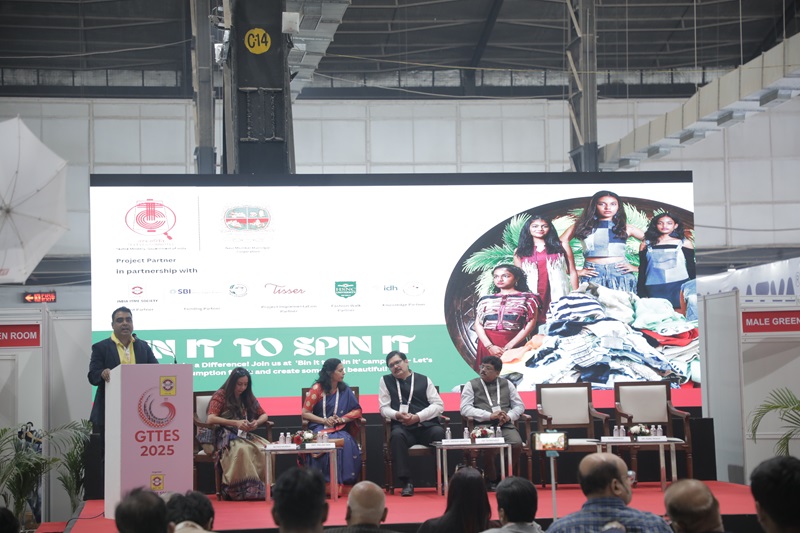In a pioneering step towards sustainable development, Tisser is at the helm of an innovative textile waste recycling initiative in Navi Mumbai, converting discarded fabrics into economic opportunities and environmental benefits. Officially titled "Sustainability in the Textile Value Chain," this collaborative project brings together government bodies, NGOs, and community groups, setting a new benchmark in responsible waste management.
A collaborative vision for sustainability
K V Ganpathy, CEO of Tisser, articulates the project's driving philosophy: "We believe this initiative, in partnership with the Textile Committee, Navi Mumbai Municipal Corporation, SBI Foundation, IDH, and Self-Help Groups (SHGs), marks the first step towards comprehensive stakeholder collaboration." Tisser's pivotal role goes beyond facilitation it spearheads technological innovation and community empowerment at every stage of the process.
The initiative targets the staggering statistic that 43 per cent of India's post-consumer textiles end up in landfills, contributing significantly to greenhouse gas emissions. Ganpathy highlights the urgency: "For every kilo of post-consumer textile, approximately 20 kilograms of carbon dioxide are emitted. In the first phase alone, we aim to prevent 200 metric tons of textile waste from reaching landfills."
Tisser’s Three-Pronged Approach: Technology, training, and trade
At the heart of the initiative lies Tisser’s strategic three-pronged approach:
Technology Integration: Leveraging a dedicated mobile application, Tisser is revolutionizing textile waste collection and sorting. The app streamlines pickup scheduling, tracks waste flow in real time, and enhances operational transparency, laying the technological foundation for efficient waste management.
Capacity Building: Empowering local communities is a cornerstone of the initiative. Tisser is training 80 SHGs, predominantly women-led, in textile waste sorting, processing, and upcycling. The 3,000 sq ft Textile Recovery Facility (TRF) in Belapur serves as the operational hub, fostering skill development and long-term community engagement.
Market Linkages: Tisser goes beyond recycling by creating sustainable livelihoods. By connecting upcycled products to markets, the organization enables SHGs to generate income, turning textile waste into valuable commodities and strengthening the circular economy.
"The entire mechanism involves collecting post-consumer textile waste from residential societies in Navi Mumbai while empowering women through capacity building," explains Ganpathy, underscoring the project's dual impact on environmental sustainability and social empowerment.

Impacting lives, shaping futures
The initiative is projected to create approximately 500 jobs, positively impacting 1,500 families in its initial phase. By engaging 80 SHGs, the project positions women as key players in the circular economy, fostering financial independence and social upliftment. The vision, championed by stakeholders like Raut and Ruprashi, Textile Commissioner, are materializing under Tisser’s strategic leadership. The meticulous process from waste collection in 200 societies to segregation and upcycling at the TRF serves as a replicable model for other cities.
"This is a collective responsibility. Individuals, government agencies, NGOs, and industry partners must come together to tackle this issue," emphasizes Ganpathy.
A blueprint for sustainable cities
Tisser aims to scale this initiative, creating a replicable model for cities across India. By harnessing the power of technology, capacity building, and strategic market linkages, Tisser is not only addressing the pressing issue of textile waste but also proving that sustainable development and community empowerment can thrive side by side.













